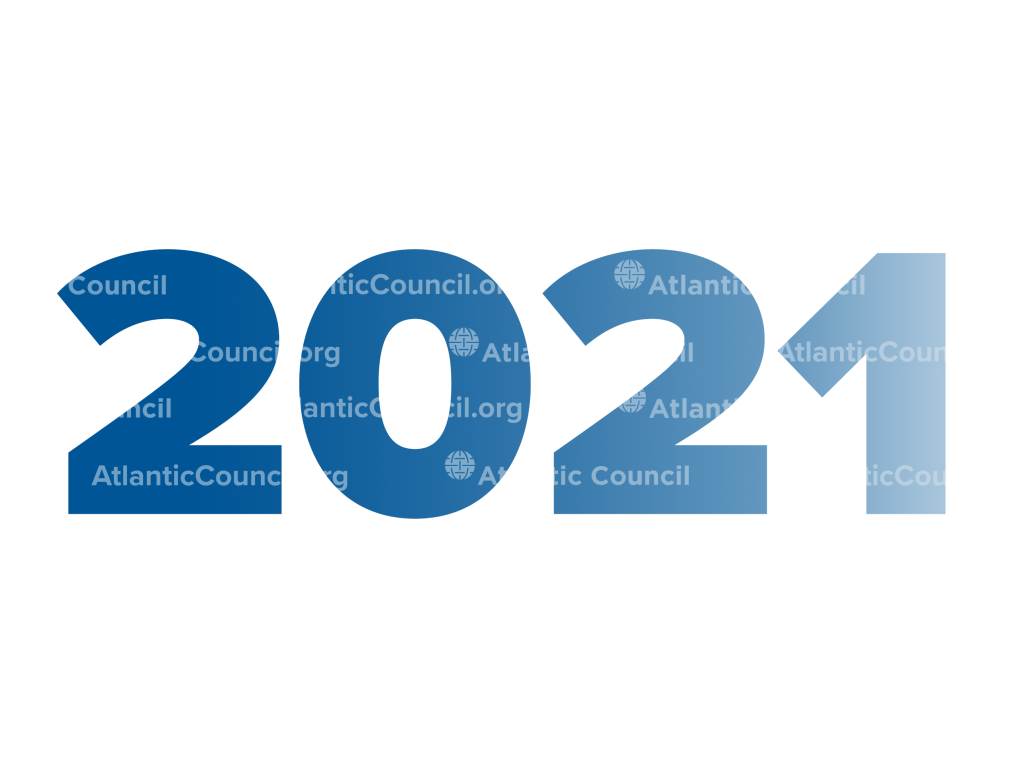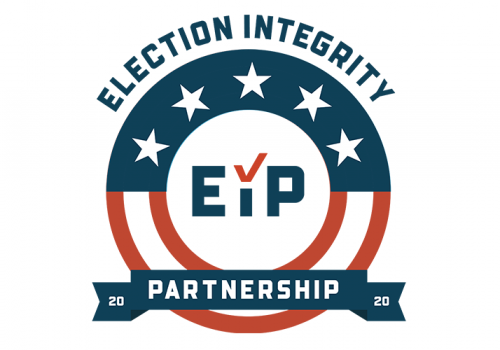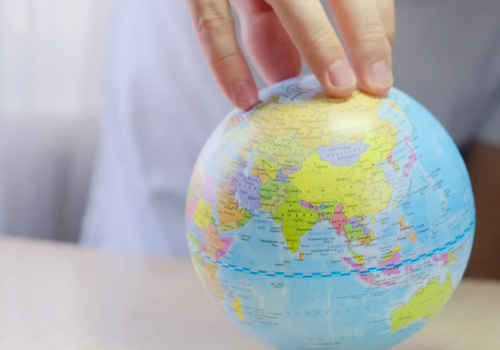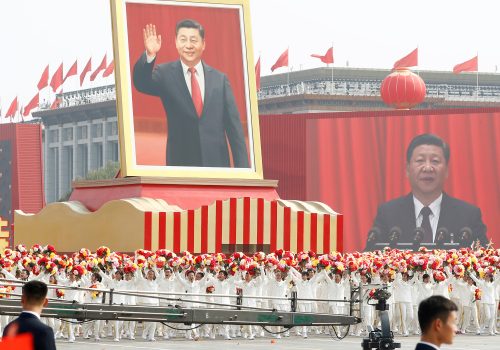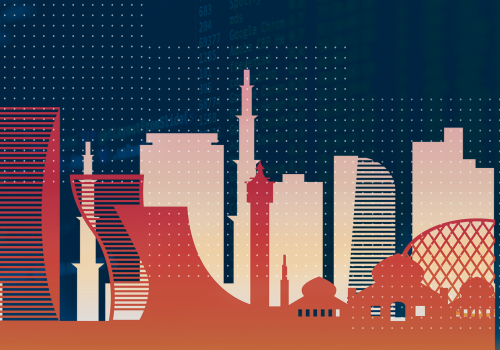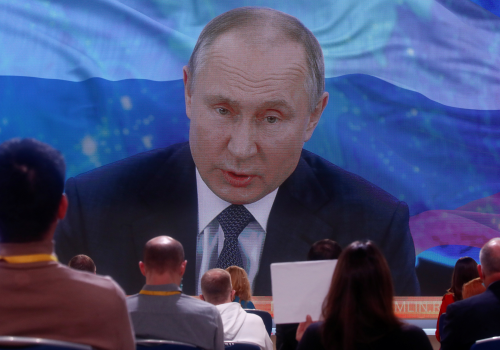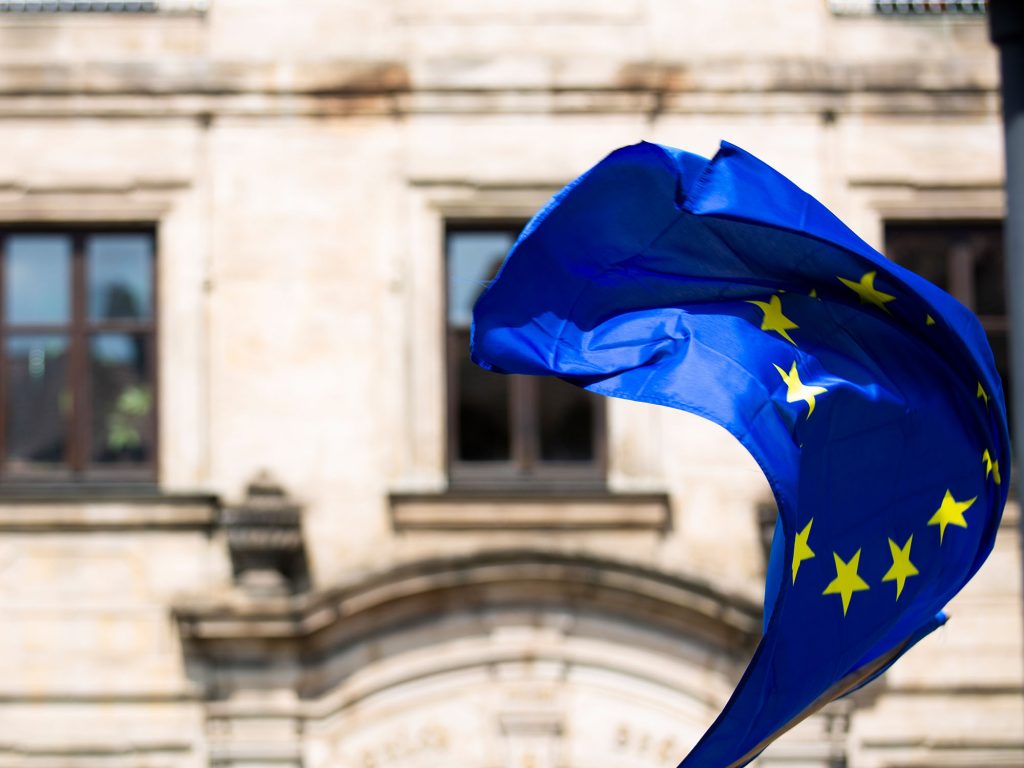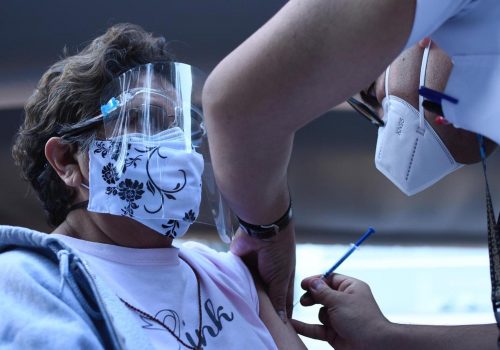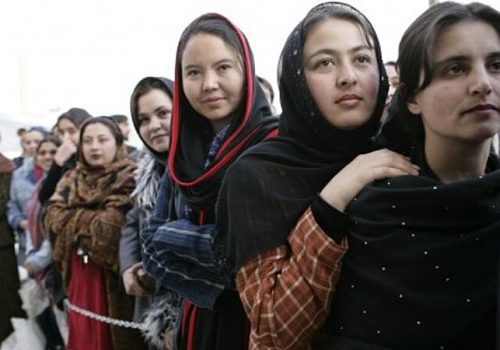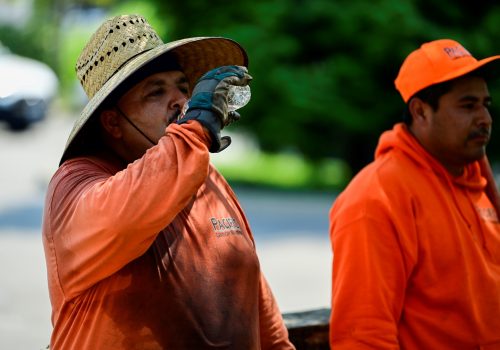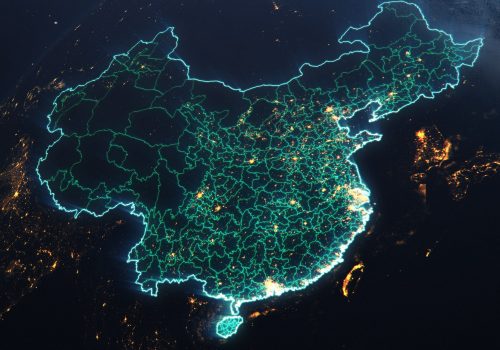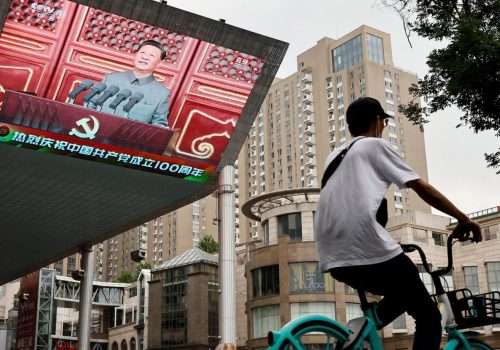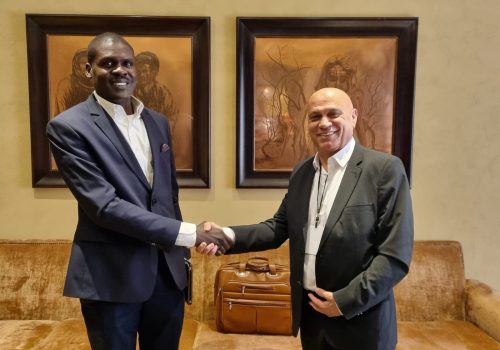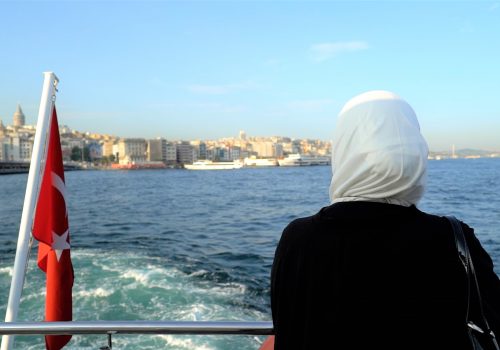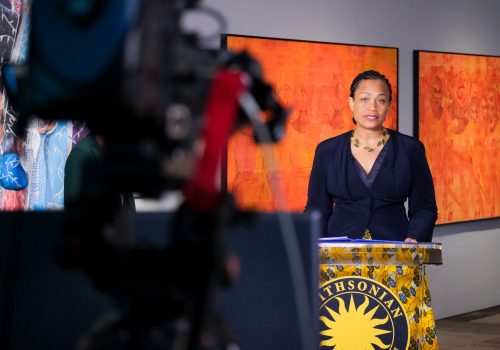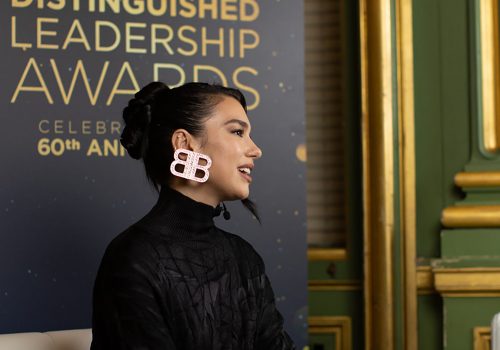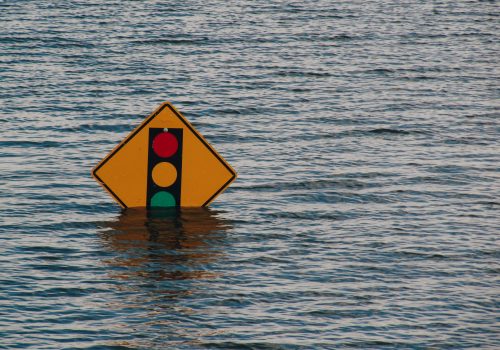In this, the Atlantic Council’s sixtieth anniversary year, we’re taking stock of our collective efforts over the past twelve months of global disruption to promote US cooperation with partners and allies on the world’s defining challenges, deliver relevant insight at speed to policymakers and the public, and shape a peaceful and prosperous global future.
The twenty-one “greatest hits” below, listed in chronological order, highlight the Council’s powerhouse convenings, from the Europe Center’s EU-US Future Forum to the Distinguished Leadership Awards; our incredible publications, from January’s Longer Telegram to December’s Global Foresight 2022; our agenda-setting coverage of major global news stories, from the attempted insurrection at the US Capitol on January 6 to the withdrawal of US troops from Afghanistan in August; and our commitment to building a stronger, more diverse foreign-policy community around the world, with the launch of the Young Global Professionals Program.
We hope you find this list as impressive, informative, and inspiring as we do.
1. Project Klondike
When the COVID-19 pandemic abruptly evicted us all from our regular work spaces, we quickly shifted just about everything we do to the digital realm—including our world-class events, which all of a sudden were able to reach far more people across the globe. As a board member told me, we had discovered gold with our digital transformation; now we had to mine it. Such was the thinking behind this year’s Project Klondike, named for the gold rush of the late nineteenth century. Our newly formed Engagement Team spent months transforming our existing event rooms into studios and created “smart spaces” for virtual meetings across the Atlantic Council. Now our high-level and flexible production capabilities can meet our hybrid future, as we’ve shown in recent months through everything from internal staff meetings to major events such as our look at the future of counterterrorism.
2. Our coverage of January 6
The year had barely begun when our worlds were shaken by the storming of the US Capitol on January 6. The Council’s Digital Forensic Research Lab, which has the finest extremism trackers in the business, quickly exposed the roots of the insurrection—helping both the public and law enforcement connect the dots, from online troublemakers to Capitol Hill invaders. DFRLab helped rebut misinformation in real time, as detailed in its March report as part of the Election Integrity Partnership. Its February “Stop the Steal timeline” provided the most comprehensive tracking of how lies about a stolen election spread on social media and fueled the shocking violence at the Capitol. As we approach the one-year anniversary of an event that changed how the world views the United States, DFRLab is continuing its reporting to help leaders protect our democracy.
3. The Young Global Professionals Program
Throughout our history, the Atlantic Council has been committed to fostering the next generation of foreign-policy leaders around the globe. This year the Council’s Millennium Leadership Program, in collaboration with our Diversity, Equity, and Inclusion Council and Human Resources team, launched a world-class, paid internship program to equip a global network of next-generation international-affairs professionals with the skills to tackle the defining challenges of the twenty-first century. Young Global Professionals—or YGPers—work with one of the fifteen programs and centers across the Council to develop professional and substantive expertise. They participate in a centralized curriculum designed to hone their collaborative problem-solving skills, teach them how to build a career in the foreign-policy space, and grant them access to senior experts on the critical issues of our time. Only 1 percent of applicants were accepted to the first year of the program, with nearly seven thousand applications for seventy-five positions across three cohorts—spring, summer, and fall.
4. The Longer Telegram
China is the defining challenge of our time—for the United States, for the world, and for the Atlantic Council. In January we published The Longer Telegram, a masterful work of strategic thinking from an unnamed former senior government official who offers a detailed blueprint for how the US government should reshape China’s own strategic paradigm to bring the rising superpower within the liberal international order. The author makes the case for how this can be accomplished by exploiting underappreciated fissures within the Chinese Communist Party leadership. The paper turned heads and sparked debate from Washington to Beijing to Islamabad to London, quickly becoming the most-viewed piece ever on the Council’s website. The second in a trilogy of China strategy documents from the Scowcroft Center for Strategy and Security, this work led to a year of action that included the establishment of our new Global China Hub amid increasing tensions over China’s military buildup, human-rights record, and crackdown on major Chinese companies. All of this only lent more urgency to the author’s compelling argument.
5. The Global Energy Forum
Our fifth annual Atlantic Council Global Energy Forum in January featured myriad innovations by Global Energy Center Senior Director Randy Bell and his team. The flagship event, which was organized and executed to reach all the world’s time zones, landed better speakers, expanded its global audience, and convened smaller, more customized events for our most significant partners. The agenda was robust, the digital platform was innovative, and the Communications team offered the right content at the right time for the right audience—as evidenced by the eighty million impressions the conference helped drive through the #ACEnergyForum hashtag on social media.
6. Russia After Putin
With so much attention focused on the current standoff over Ukraine, as Vladimir Putin’s Russia threatens to dramatically escalate its eight-year war there, take a moment to consider what might happen after the Russian strongman exits the stage. In this in-depth report published by the Eurasia Center in February, former Council expert Anders Åslund and Russian opposition politician Leonid Gozman chart out the necessary steps to reform Russia so that the country becomes a constructive player on the world stage and Russians themselves play a greater role in a fairer political and economic system. The key, Åslund and Gozman argue, is dismantling Russia’s bloated security and legal bureaucracy and restoring personal and political freedoms. While the world is occupied with today’s grave security concerns, this report provides a roadmap for what could be a brighter future in Russia.
7. Broken Trust: Lessons from Sunburst
Last year, the sprawling Sunburst cyberattack—which included the breach of the software contractor SolarWinds—was discovered after it had infected dozens of government agencies across the globe and many of the world’s biggest companies. Our Cyber Statecraft Initiative’s incisive report, Broken Trust: Lessons from Sunburst, provides a blueprint for preventing the next such breach, which will require a public-private partnership to emphasize “speed, balance, and concentrated action.” Trey Herr, the initiative’s director, drew from this work when testifying before the House Committee on Science, Space, and Technology.
8. The EU-US Future Forum
In May, as part of a yearlong campaign on the European Union, our Europe Center launched the first EU-US Future Forum with a who’s who of the most influential transatlantic voices, including Slovak President Zuzana Čaputová; Estonian President Kersti Kaljulaid in conversation with US Senator Jeanne Shaheen (D-NH); Germany’s Greens co-leader Annalena Baerbock (who is now minister of foreign affairs); US Secretary of Energy Jennifer Granholm, Senator Chris Murphy (D-CT), and Senator James Risch (R-ID); and EU commissioners Thierry Breton, Vera Jourová, Kadri Simson, Olivér Várhelyi, Margaritis Schinas, and Dubravka Suica. But aside from the A-list of speakers, this was a display of the Council’s transformation in the COVID-19 era, as our teams built a world-class television studio in our Washington headquarters befitting any major news network. Indeed, this event—which generated 113,000 views across platforms, with the hashtag #EUFF2021 generating more than 72.5 million impressions—became a playbook for others at the Council to engage their global audiences in new and inventive ways, particularly as Zoom fatigue becomes more pervasive.
9. The first full year of Atlantic Council Front Page
In 2021, the Atlantic Council’s premier live ideas platform—#ACFrontPage—celebrated its first full year of gathering leading voices around the world to make news and engage with global audiences. Reaching nearly 200,000 livestream viewers and generating over 156 million Twitter impressions, Atlantic Council Front Page featured twenty-nine speakers this past year, including YouTube CEO Susan Wojcicki, Secretary of the Smithsonian Lonnie Bunch, Belarusian opposition leader Sviatlana Tsikhanouskaya, Chair of the House Foreign Affairs Committee Representative Gregory Meeks, Nobel Laureate Malala Yousafzai, and Director of the National Economic Council Brian Deese. The #ACFrontPage platform also elevated many other major bodies of work at the Atlantic Council, including special editions featuring French President Emmanuel Macron, US Secretary of State Antony Blinken, and Prince Charles. This is the place where the world’s newsmakers come to discuss the most important issues in front of a knowledgeable audience.
10. Briefing Vice President Kamala Harris
Before her first trip to Latin America, US Vice President Kamala Harris called on leading experts to brief her on how to address the root causes of the surge of migration to the United States from Guatemala, Honduras, and El Salvador. Among those top minds was Jason Marczak, senior director of our Adrienne Arsht Latin America Center, who advised Harris on how the US government can help stamp out extortion and corruption, boost small business and human capital, facilitate trade, and expand digital-infrastructure investments. Those recommendations built on the Center’s landmark work tracking COVID-19 vaccinations across the region and charting the course to economic opportunity in the Northern Triangle, and they helped inform the White House’s migration strategy for Central America, released in July.
11. The GeoTech Commission Report
We are at the dawn of the “GeoTech Decade,” a moment when technology will have an expanded impact on geopolitics, the economy, and global governance. To set the agenda for this new era, our GeoTech Center gathered a high-level bipartisan commission featuring leaders from Congress, academia, the private and nonprofit sectors, and more. They produced a comprehensive report on how the United States can retain its preeminence in crucial areas while helping ensure the trustworthiness and reliability of the digital economy. The work received strong endorsements from leaders on Capitol Hill and made its way to US President Joe Biden himself as it continues to inform administration policy.
12. Our coverage of the Taliban’s takeover of Afghanistan
While the Atlantic Council doesn’t pretend to be able to fully predict or control fast-moving events, our Afghanistan-related work recognized early on, following Biden’s announcement of a US troop withdrawal from the country, that we needed to find a new approach to ensure Afghanistan’s security, prosperity, and freedoms. There’s far too much field-shaping work to list here, but April’s transatlantic charter for peace and security in Afghanistan, penned by a high-level group convened by our South Asia Center, warned of dangers ahead following the agreement for a US military exit. As Kabul fell in August, the Scowcroft Center’s Ben Jensen brilliantly explored the Taliban’s “operational art” while the Digital Forensic Research Lab’s Emerson Brooking described how the Taliban “took the internet” and GeoEconomics Center Senior Director Josh Lipsky and Rafik Hariri Center and Middle East Programs Senior Director Will Wechsler teamed up in the pages of the Wall Street Journal with a head-turning argument on how the International Monetary Fund should deal with Afghanistan’s pending COVID-19 relief funds. Behind the scenes in those harrowing days and weeks, so many of our colleagues worked long hours to evacuate endangered Afghans. It was a moment of deep sorrow for so many of us, but also one of pride that we came together to help inform debate at a critical moment for the United States.
13. Our work on extreme heat
Our Adrienne Arsht-Rockefeller Foundation Resilience Center was launched to deal with the vitally important but little-understood work of climate adaptation and resilience, and this year they sunk their teeth into climate’s deadliest impact: extreme heat. In August, the team pulled together the Council’s first-ever “Big Story,” a rich, rousing, and insightful narrative by the center’s senior director, Kathy Baughman McLeod, on the findings and policy solutions stemming from the Resilience Center’s excellent report on the economic and social impacts of extreme heat in the United States. Aside from earning coverage from CBS News, Time magazine, Fast Company, and Reuters, the analysis was soon cited in a US Department of Labor press release announcing the launch of a new rule to protect workers from extreme heat nationwide. Now that’s impact.
14. The Global China Hub
The most important strategic question of our generation is China’s role in the world in the twenty-first century. And the establishment of the Global China Hub in September demonstrates the Council’s unique advantage in making a meaningful impact in this area. Our other fourteen programs and centers and their incredible expertise give the Council remarkable analytical insight into the many global facets of the China challenge. Unlike any other center at the Council, the Global China Hub has been designed from the beginning to collaborate with all programs and centers with a China remit to create a cross-cutting capability for better understanding China’s activities in the world.
15. China Pathfinder
It’s hard to get a window into China’s often-opaque economy. So this year we built one. Developed by our GeoEconomics Center and Rhodium Group, the China Pathfinder Project is an entirely new system for scoring China’s convergence or divergence from open market-economy norms through six economic indicators: financial-system development, a modern innovation system, market competition, trade openness, direct-investment openness, and portfolio-investment openness. When taken together, these indicators offer a clear and data-driven assessment of China’s claim that it is reforming. Our research shows that, in fact, it’s a mixed story. Although China has undertaken significant trade reforms over the past decade, those reforms fall far short when compared with open-market economies, and China’s financial markets may be beginning to backslide. This tool will be updated quarterly to inform policy discussions about how market economies should respond. For now, such economies should be making moves to protect themselves with dwindling Chinese growth on the horizon.
16. The N7 conference
It was a delicate undertaking to say the least: hosting the first-ever in-person gathering of senior government officials from Israel and all six Arab nations that have announced diplomatic normalizations with Israel. But the get-together to cement the Abraham Accords, featuring Bahrain, Egypt, Jordan, Morocco, Sudan, and the United Arab Emirates, was a grand success. With the Atlantic Council and Jeffrey M. Talpins Foundation convening the right players, the countries worked to deepen regional cooperation and integration, in contrast to the mostly bilateral contacts that had occurred since the Accords.
17. Do Seagulls Migrate?
Suffice it to say, documentaries are not the usual wheelhouse for a think tank. But our Atlantic Council IN TURKEY team is an unusually creative bunch, and they produced the Council’s first-ever documentary, Do Seagulls Migrate? The film chronicles the lives of four Syrian women who fled their homes in a time of war to seek survival, prosperity, and a new life in Turkey. Do Seagulls Migrate? reveals the refugee experience firsthand as Reem, Khloud, Inam, and Reem M. share their emotional journeys, care for their families, forge new experiences, and build new careers. Screening this moving documentary at a venue as storied as the Kennedy Center made for a powerful evening, and we’re looking forward to the festival buzz for the film in 2022.
18. The Africa Creative Industries Summit
Soft power is the new hard power. That was the lesson from the first annual African Creative Industries Summit, hosted by our Africa Center and the Smithsonian Museum of African Art, and featuring heads of state, top diplomats, groundbreaking artists, and even a soccer legend. All the participants pointed to Africa’s rising soft power, which is evident in music and fashion trends sweeping the globe, not to mention sports and film talent. The United States has a crucial role to play in fostering the growth of these industries, which will help power the economic revival of the world’s youngest continent by age.
19. The Distinguished Leadership Awards
At our core, we at the Atlantic Council are community builders. Without our communities of influence and impact, none of our work to shape the global future gets traction. COVID-19 has pushed our communities almost entirely to the virtual realm, which makes an in-person gathering all the more remarkable. Especially one of the magnitude of the Distinguished Leadership Awards, our first in-person awards dinner in more than two years. It was a stunning success, and not just for our fundraising efforts or stellar honorees—President of the European Commission Ursula von de Leyen; Chairman and CEO of Pfizer Albert Bourla; the co-founders of BioNTech, Özlem Türeci and Ugur Sahin; and musician Dua Lipa. Most of all, it was the magic of our friends all being in the same room that made this night unforgettable.
20. Our presence and announcements at COP26
The Atlantic Council’s presence at this year’s United Nations Climate Change Conference of the Parties (COP26)—through our Adrienne Arsht-Rockefeller Foundation Resilience Center and our Global Energy Center—set itself apart with the solutions-oriented nature of its work. Our teams focused on meaningful discussions among significant players on issues that included green hydrogen, small modular nuclear projects, electric vehicles, agricultural advances, and city-focused, financial, insurance, policy, and on-the ground solutions for tackling climate change’s biggest killer: heat. The Arsht-Rock team provided some of the most creative and impressive work in Glasgow on climate-change adaptation, while the Global Energy Center team offered up some of the smartest ideas and most powerful convenings on climate mitigation. If you’re a US legislator navigating climate-related issues, you turn to the Atlantic Council as your partner.
21. Global Foresight 2022
From the Omicron variant and Russia’s threatening of Ukraine to China’s saber-rattling over Taiwan and Iran’s simmering nuclear program, 2022 is poised to be a volatile year—with a highly uncertain decade to follow. That’s why we have the finest foresight minds around as part of the Scowcroft Center to peer into the future and assess the top risks and opportunities for the coming year, provide a “choose your own adventure” selection of scenarios for what the world could look like in 2030, and explore emerging “snow leopards”—known but underappreciated phenomena that will shake our world.
Frederick Kempe is president and CEO of the Atlantic Council.
